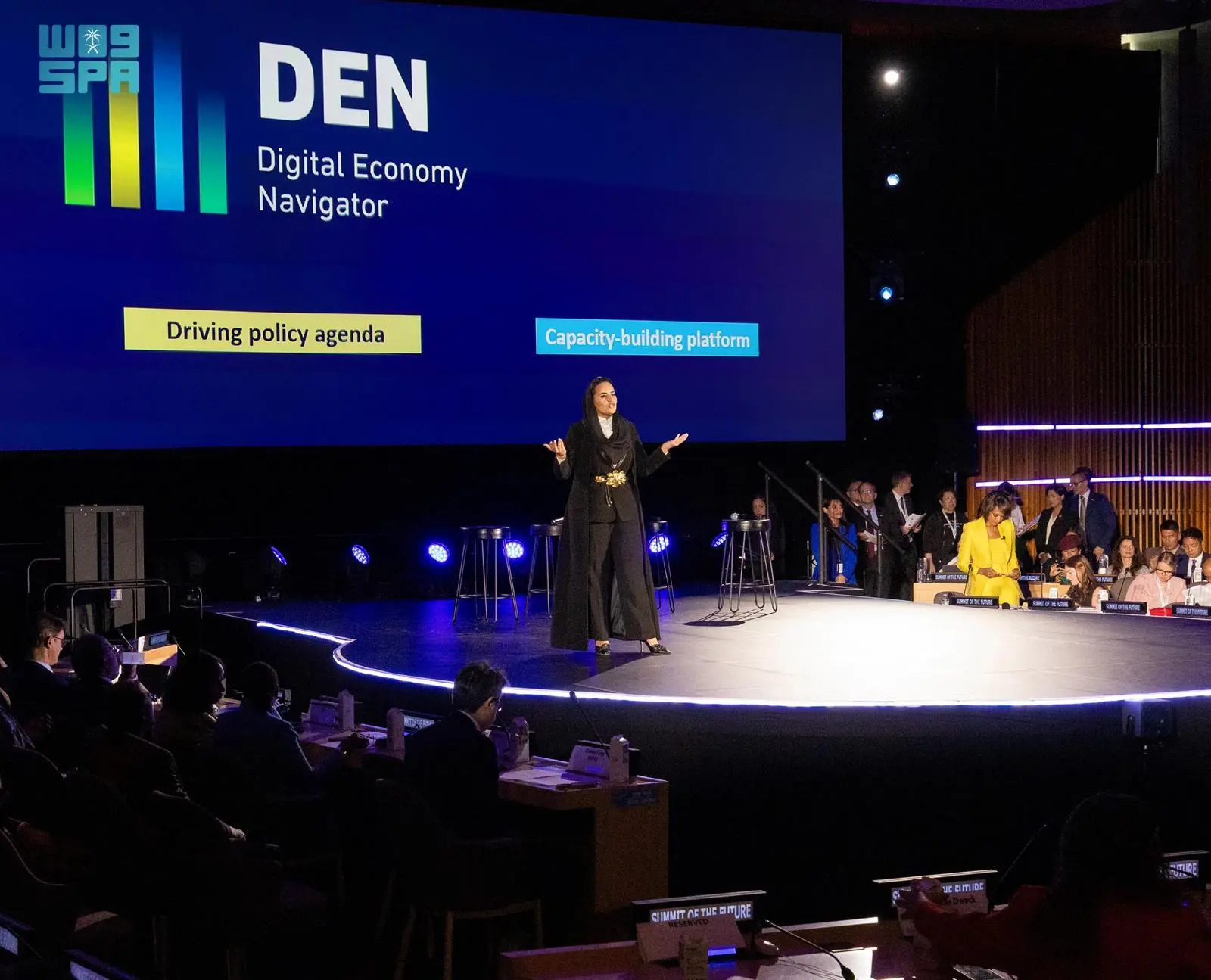New York, US — The Digital Cooperation Organization (DCO), a global multilateral organization committed to enabling digital prosperity for all by accelerating the inclusive growth of the digital economy, has launched its inaugural Digital Economy Navigator (DEN) that enables countries to better navigate the paths to digital economy maturity, find opportunities for growth, benchmark progress, and bridge the gap in digital economy maturity.
DEN was unveiled at SDG Digital, held this year during the 79th Session of the UN General Assembly in New York from September 10 to 27.
Drawing upon officially disseminated statistics, secondary data, and unique proprietary data from a large DCO survey, DEN is a unifying framework that addresses digital economy maturity across 50 countries, including the DCO member states. The framework provides a platform for nations, stakeholders, and decision makers to harmonize efforts to advance the global digital economy, enable accessibility, sustainability, and shared prosperity across borders.
The navigator evaluates the extent to which factors contribute to economic prosperity, sustainability, and improved quality of life. This provides a common understanding for different stakeholder groups to work together in developing digital economy strategies to bridge gaps and allows for progress to be tracked over time.
DCO Secretary-General Deemah AlYahya said: “The Digital Economy Navigator aims to enhance accessibility, sustainability, and economic prosperity, ensuring that countries are not just keeping pace but leading in the digital era. As the first global framework to comprehensively address digital economy maturity from a user-centric perspective, DEN plays a pivotal role in advancing the DCO’s mission of supporting evidence-based policies and impactful outcomes in the digital economy. By providing reliable and detailed data, insights into current trends and emerging technologies, and strategic foresight into future challenges, DEN equips countries to achieve higher levels of prosperity, inclusion, and sustainability. We, at DCO, are committed to empowering stakeholders with the knowledge they need to navigate and thrive in the ever-evolving digital landscape.”
DEN is relevant for policymakers, business executives, and experts in digital economy. Decision makers are equipped with the research, data, and analysis necessary to cultivate a more inclusive digital economy and society, encourage digital innovation, create jobs, accelerate GDP growth, amplify sustainability through digital technologies, and enhance overall wellbeing.
Uniquely among global tools, DEN assesses the digital economy through the lens of three intersecting dimensions: Digital Enablers, Digital Business, and Digital Society. Within the three dimensions, 10 pillars synthesize and summarize key aspects of countries’ digital economy and use of digital technology application from 102 indicators gathered from secondary data sources, as well as primary data from a novel survey of more than 27,000 people across the 50 countries.
DEN introduces a comprehensive maturity classification system with five categories based on pillars’ scores from 0 to 100 that can be used by stakeholders to better target and focus initiatives to drive digital advancement and innovation in their quest for sustainable and inclusive growth of their digital economy.
DEN reveals a diverse picture of maturity across regions. North America, for example, leads in digital innovation, followed by Europe and Central Asia, and East Asia and Pacific. South Asia leads in digital work and training, followed by the Middle East and North Africa region. The Sub-Saharan Africa, and Latin America and the Caribbean regions are advanced in the digital education and health services. This pillar particularly, “Digital for education and health”, demonstrates substantial global maturity, with moderate variability in scores indicating a trend toward global convergence.
The DEN report, infographic, methodology, and data in Excel format may be accessed by visiting the DEN online platform at den.dco.org. The report provides an in-depth analysis of digital economy maturity from multiple perspectives. Users also have the option to download the report for offline access.
DEN will continue to evolve over time, to capture the rapidly changing nature of the digital economy. While DEN’s overall objective will remain in future editions, technologies and applications will evolve and be measured by how they contribute to the digital economy.
DCO launches Digital Economy Navigator to bridge global digital gap

- DEN was unveiled at SDG Digital, held this year during the 79th Session of the UN General Assembly in New York from September 10 to 27.
- DEN is a unifying framework that addresses digital economy maturity across 50 countries, including the DCO member states.







